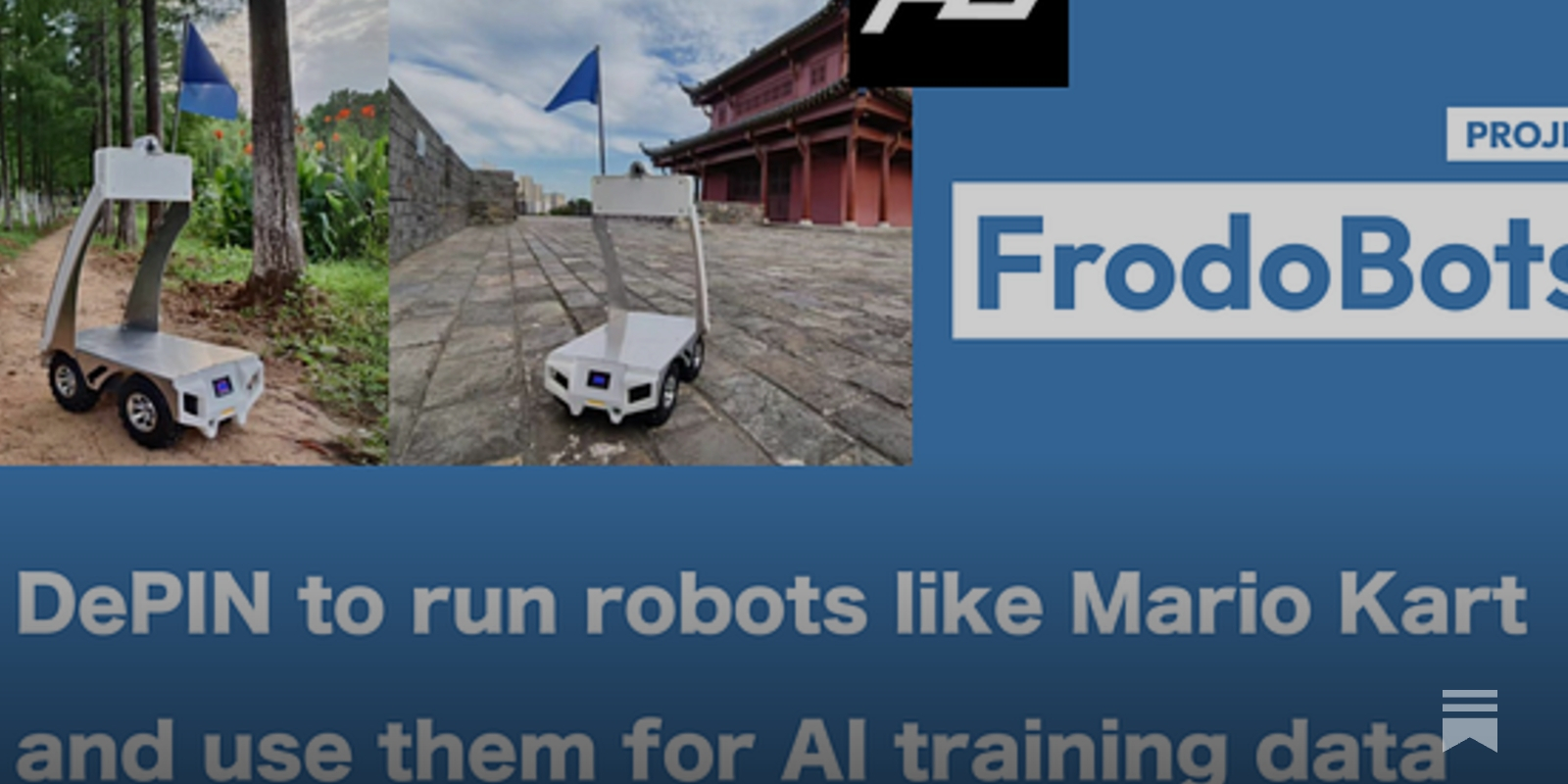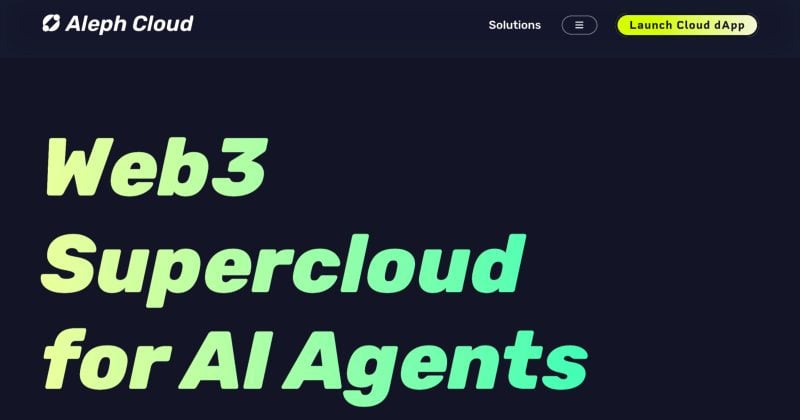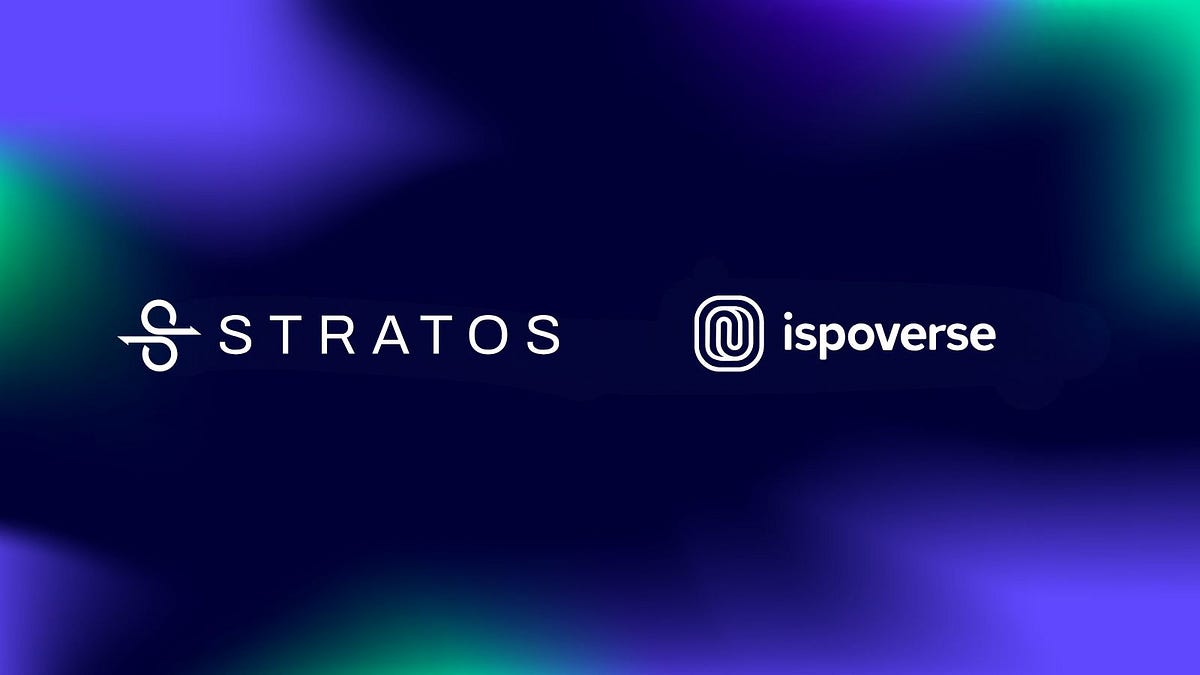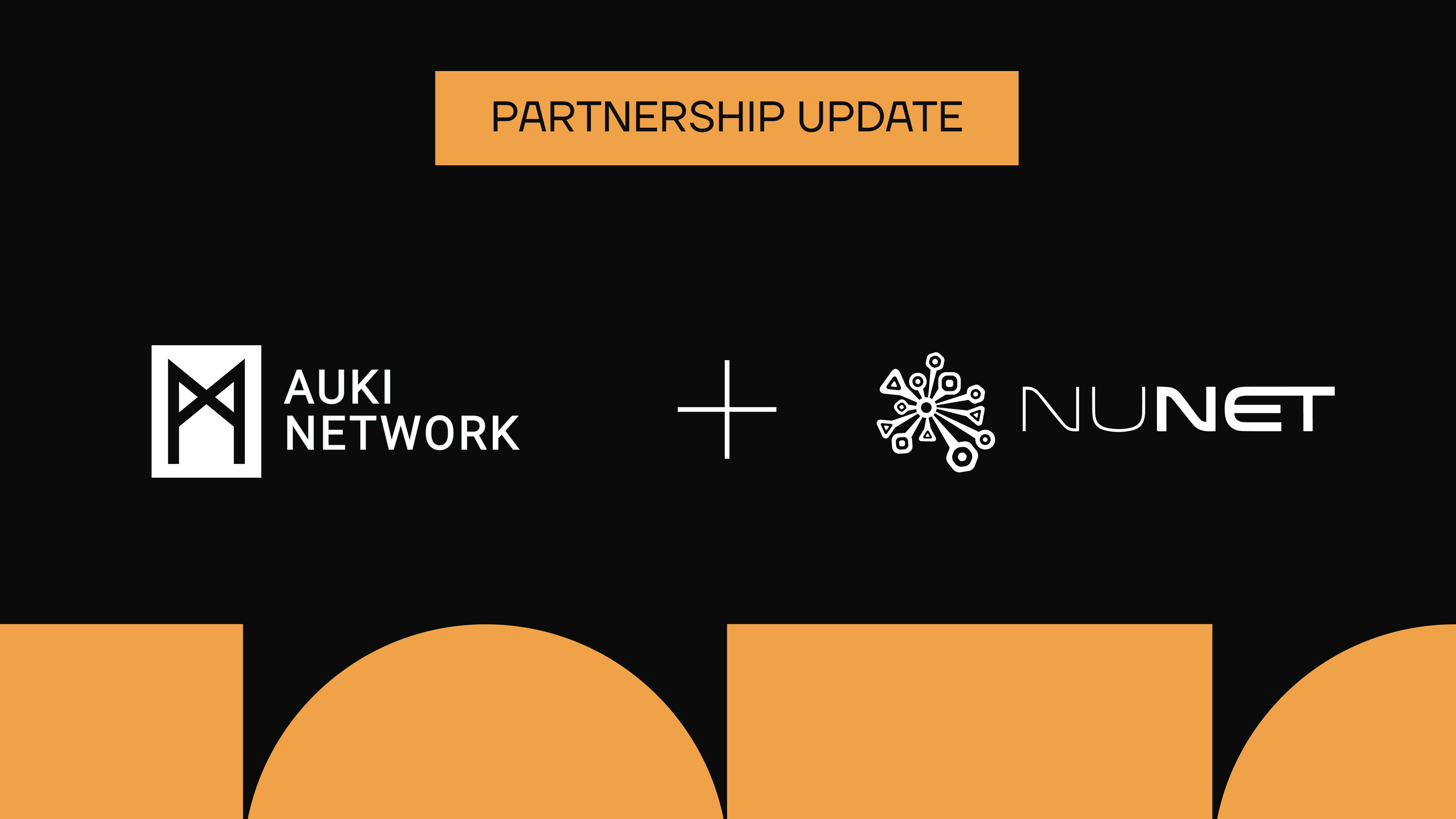Latest DePIN AI News
View AI Projects
10 months ago
Bittensor's TAO Token Surges Ahead of Coinbase Listing
Bittensor's native token, TAO, experienced a significant price surge on February 19, following the announcement of its listing on the Coinbase exchange. The price of TAO spiked by 20%, reaching intraday highs of $420, amidst a broader rally in the altcoin market. While this increase was modest compared to other top performers like Story and Sonic, it positioned Bittensor among the leading gainers. This upswing allowed TAO to recover losses from previous days, reflecting a positive market sentiment as altcoins mirrored Bitcoin's recent fluctuations. The price movement was further fueled by anticipation surrounding Coinbase's upcoming listing scheduled for February 20, 2025.
Coinbase's decision to list TAO is pivotal for Bittensor, which is recognized as a leading AI token by market capitalization, currently ranking second behind NEAR. The exchange confirmed that trading would commence on the TAO/USD pair, contingent on meeting liquidity conditions. This phased launch is expected to enhance Bittensor's visibility and accessibility, especially since TAO is already available on other major exchanges like Binance and Kraken. The listing is anticipated to provide Bittensor with additional traction in the competitive cryptocurrency landscape, particularly in the AI sector.
Bittensor, launched in 2019, has garnered significant backing from prominent venture capital firms, including Pantera Capital and Digital Currency Group. Grayscale has highlighted Bittensor's importance in the AI domain, emphasizing its decentralized model, which aims to enhance transparency and democratize access to AI technologies. This is particularly relevant in light of concerns surrounding centralized AI projects, which may pose risks related to data security and bias. As the cryptocurrency market continues to evolve, Bittensor's developments and its Coinbase listing could play a crucial role in shaping the future of decentralized AI solutions.

10 months ago
Coinbase to List Bittensor's TAO Token Amid Liquidity Challenges
Coinbase has announced its plans to list Bittensor's TAO token, with trading expected to commence on February 20, 2025, contingent upon meeting certain liquidity conditions. Bittensor operates as a decentralized AI network that incentivizes nodes for their contributions to AI model development. The announcement was made via Coinbase's official assets account, emphasizing the importance of adhering to the correct network for transfers to avoid potential loss of funds.
The rollout of TAO-USD trading will be executed in phases, initially imposing restrictions on trading volume and regional availability. Full trading access will only be granted once adequate liquidity is achieved, and some jurisdictions may still face trading limitations. This strategic approach aims to ensure a stable trading environment for the new asset, which has already shown promising performance in the market, with a 13.1% increase in price over the last 24 hours, positioning it as the fourth-best performer among the top 100 cryptocurrencies by market capitalization.
As Bittensor continues to develop its decentralized network, the TAO token plays a crucial role in rewarding participants who contribute to the platform's architecture. The growing interest in Bittensor and its innovative approach to AI model development reflects a broader trend within the blockchain space, where decentralized solutions are increasingly being recognized for their potential to disrupt traditional systems. Investors and traders alike will be closely monitoring the liquidity conditions leading up to the trading launch, as these factors will significantly influence the token's market performance.

10 months ago
Solpen Launches AI-Powered DePIN Platform on Solana Blockchain
Solpen, an innovative AI-powered Decentralized Physical Infrastructure Network (DePIN) platform, has officially launched on the Solana blockchain. This platform aims to integrate decentralized incentives with real-world user behavior, creating a smarter and more interconnected lifestyle. Key features include AI-driven rewards, where users earn incentives for their interactions, and the first device, Solpen Vape, which offers real-time insights and a customizable experience without nicotine. The platform emphasizes user privacy through blockchain technology, ensuring that data remains encrypted and controlled by individuals.
At the heart of Solpen is its commitment to decentralized governance. The platform operates as a decentralized autonomous organization (DAO), allowing users to participate in decision-making processes, thereby fostering community-driven growth. The AI algorithms dynamically adjust rewards based on user interactions, enhancing engagement and participation. Furthermore, Solpen's collaboration with Tars AI, a leader in AI solutions, aims to bolster the platform's capabilities, ensuring that it remains at the forefront of innovation in the DePIN ecosystem.
Looking ahead, Solpen envisions a transformative impact on the Internet of Things (IoT) sector. Plans for the future include the integration of smart devices across various IoT products and the launch of Solpen DAO, which will empower users to vote and contribute to governance. Additionally, the platform aims to expand into key markets such as Europe and Southeast Asia. By combining AI, decentralized blockchain technology, and IoT ecosystems, Solpen is set to redefine the user experience in the Web3 space, paving the way for a decentralized, AI-powered future.

10 months ago
CUDOS and Rainfall Forge Partnership for Decentralized Cloud Infrastructure
On February 18, 2025, CUDOS, a leader in sustainable decentralized cloud computing, announced a strategic partnership with Rainfall, a decentralized and privacy-preserving Personal AI platform. This collaboration aims to streamline the infrastructure for node setup within the Rainfall ecosystem, allowing node operators and buyers to deploy and manage nodes on CUDOS with ease. The partnership promises to reduce complexity and enhance cost-effectiveness, making it simpler for participants to engage in the decentralized network. Rajesh Pradhan, co-founder and CTO of Rainfall, emphasized that this initiative would facilitate greater accessibility and efficiency within their ecosystem, while also offering operators a clear pathway to participation and rewards.
To kick off this initiative, reference nodes have already been deployed on CUDOS, serving as models for additional Rainfall node operators. These reference nodes will guide participants in integrating into the network with minimal friction. Pete Hill, VP of Sales at CUDOS, expressed excitement about supporting Rainfall’s decentralized infrastructure, highlighting the importance of an easy-to-use node setup process in promoting the adoption of decentralized cloud solutions. This partnership not only simplifies node deployment but also strengthens the foundation for Web3 AI applications, reinforcing a commitment to sustainable and accessible AI computing resources.
The collaboration between CUDOS and Rainfall signifies a shared vision for a more decentralized, efficient, and user-friendly cloud ecosystem. By providing strong economic incentives for node operators, this initiative aims to cultivate a robust and thriving network. Both companies are dedicated to bridging the gap between cloud computing and blockchain, catering to the growing demands of AI, the Metaverse, and High-Performance Computing (HPC) applications. Together, they are paving the way for a future where decentralized computing is both sustainable and accessible to all users.

10 months ago
Golem's 40% Surge: A Comeback or Speculative Rally?
Golem has made headlines recently with a remarkable 40% price surge, reigniting interest in its potential future. Once a frontrunner in decentralized computing, Golem's resurgence raises questions about whether this is a genuine comeback or merely a speculative rally. The sudden spike in price has led to discussions within the crypto community, especially given Golem's previous struggles and a notable absence from social media since late 2024. The project, which allows users to lease unused processing power, had been overshadowed by its lack of updates and communication from its development team, leading many to believe it was on the verge of extinction.
The recent price movement has sparked debates about Golem's viability in the competitive landscape of AI-focused cryptocurrencies. While the surge has generated excitement, the subsequent pullback has cast doubt on its sustainability. Technical indicators, such as the Relative Strength Index (RSI) and On-Balance Volume (OBV), suggest that the price increase may have been driven by speculative trading rather than solid fundamentals. Additionally, Golem faces stiff competition from established projects like Render and Ocean Protocol, which have shown stronger development and community engagement. For Golem to reclaim its position, it will need to demonstrate renewed innovation and effective communication with its user base.
As the market watches closely, Golem's next moves will be crucial in determining its future. Investors are advised to remain cautious, as the lack of clear updates from the team could lead to a quick reversal of fortunes. The current landscape for AI cryptocurrencies is dynamic, and while Golem's recent surge is noteworthy, it must prove its long-term viability to attract serious investment. Without a solid strategy and community involvement, Golem risks becoming just another fleeting trend in the ever-evolving crypto market.

10 months ago
FrodoBots: Merging Robotics and Blockchain on Solana
FrodoBots is an innovative project that merges robotics with blockchain technology on the Solana platform. This DePIN (Decentralized Physical Infrastructure Network) initiative allows users to remotely control small robots over the Internet, providing a unique gaming experience while simultaneously collecting valuable robotics data. The project aims to revolutionize how users interact with robotics, making it accessible and engaging for a broader audience. The development team behind FrodoBots is focused on creating a seamless user experience that combines the excitement of gaming with the practical applications of robotics.
One of the flagship products of FrodoBots is the "Earth Rovers" game, which can be likened to a real-world version of Mario Kart. In this worldwide treasure hunting game, players control small rover robots equipped with advanced features such as high-resolution cameras, microphones, and speakers. These robots can navigate real-world environments while being controlled remotely, allowing players to experience the thrill of driving a robot on actual roads. The integration of 4G communication ensures that users can maintain a stable connection while enjoying the game.
The Earth Rovers game also includes a mission function that records driving data and rewards players for visiting specific locations. This feature not only enhances the gaming experience but also contributes to the collection of data that can be utilized for further AI development. As FrodoBots continues to evolve, it promises to offer exciting possibilities for both gaming enthusiasts and robotics researchers, paving the way for a new era of interactive entertainment and data collection in the realm of robotics.

10 months ago
Aleph Cloud: A Decentralized Supercloud for AI Applications
As artificial intelligence (AI) systems gain traction, the demand for a decentralized, secure, and adaptable infrastructure is becoming increasingly important. Aleph Cloud emerges as a chain-agnostic, GDPR-compliant supercloud that provides scalable storage, computing, and database services through a network of distributed nodes. This platform integrates dynamic, IPFS-based storage with mutable databases and secure computing resources, catering to a wide range of applications from real-time data processing in gaming to large-scale AI model deployment. The Aleph ecosystem also includes TwentySix Cloud, which simplifies application deployment and management on this distributed infrastructure.
Aleph Cloud is particularly beneficial for AI agents that require constant access to reliable computing power and secure data. The platform offers scalable compute options, including on-demand and persistent virtual machines (VMs), as well as serverless functions that operate on a distributed network. Additionally, confidential VMs utilize hardware-based encryption to ensure the privacy of sensitive computations. The upcoming GPU marketplace, set to launch in Q1 2025, will further enhance the platform's capabilities, enabling high-performance tasks such as AI training and rendering. This multi-chain support allows AI agents to seamlessly interact with various blockchain ecosystems, facilitating the development and deployment of innovative applications.
In comparison to other cloud solutions like Arweave, Filecoin, and AWS, Aleph Cloud stands out by combining dynamic storage with distributed computing resources in a privacy-first framework. Its unique offerings include flexible storage management, integrated compute capabilities, and enhanced security through confidential VMs. Furthermore, Aleph Cloud's economic model utilizes the native ALEPH token, which incentivizes network participation and ensures reliable service. With a grant campaign providing up to $1 million in cloud credits, Aleph Cloud aims to empower developers to explore and scale their projects, positioning itself as a leading solution for AI-driven applications in a decentralized landscape.

10 months ago
Ispoverse Partners with Stratos to Enhance Decentralized Gaming Infrastructure
Ispoverse, a next-generation gaming platform, has announced an exciting partnership with Stratos to enhance its infrastructure. This innovative platform focuses on delivering immersive workforce and education experiences through various engaging activities such as Play2Earn, hackathons, NFT exhibitions, quests, and co-working spaces. With a thriving community of over 200,000 members worldwide, Ispoverse aims to revolutionize the gaming landscape by integrating decentralized technologies into its offerings.
Stratos will provide the decentralized storage backbone for Ispoverse, ensuring that the gaming ecosystem benefits from secure, scalable, and censorship-resistant infrastructure. This collaboration highlights the importance of decentralized infrastructure in supporting AI, decentralized physical infrastructure networks (DePIN), and Web3 applications. The scalable storage and compute network offered by Stratos will enable seamless integration for gaming and decentralized applications (dApps), paving the way for a more robust and engaging user experience.
Together, Ispoverse and Stratos are redefining the AI-based gaming landscape by leveraging decentralized infrastructure. This partnership not only enhances the gaming experience but also promotes a more inclusive and participatory environment for users. As the gaming industry continues to evolve, the integration of decentralized technologies will play a crucial role in shaping the future of gaming, making it more accessible and innovative for players around the globe.

10 months ago
Auki Network Partners with NuNet to Simplify Decentralized Computing
In a rapidly evolving technological landscape, Auki is pioneering a decentralized machine perception network aimed at becoming the nervous system for artificial intelligence and spatial computing. As the world moves towards a future dominated by robots, drones, and autonomous vehicles, the need for a robust infrastructure that enables these devices to perceive and understand their environment becomes critical. Auki has already established a global network of infrastructure providers, but the complexity of the setup process has hindered scalability. To address this issue, Auki has partnered with NuNet, which has developed the NuNet Appliance—a solution designed to simplify the onboarding process for node operators, making it easier for anyone to contribute their computing resources to the Auki Network.
The integration of the NuNet Appliance marks a significant milestone for Auki, as it aims to democratize access to decentralized computing. Previously, setting up a node required technical expertise, including knowledge of IP addresses, port management, and Docker commands. With the new solution, potential contributors can easily deploy and manage Auki Network nodes with just a few clicks, thereby lowering the barriers to entry for participation. This initiative not only enhances the accessibility of the Auki Network but also strengthens its position in the competitive landscape of decentralized AI perception, which is crucial in the face of centralized alternatives that may lead to increased surveillance.
As Auki continues to build its decentralized machine perception network, the collaboration with NuNet is set to play a vital role in ensuring that critical infrastructure is owned and operated by the community. By harnessing underutilized computing power from various sources, NuNet enables efficient execution of workloads across a distributed ecosystem. This partnership is not just about technology; it's about creating a future where spatial computing is collaborative, privacy-preserving, and free from the constraints of centralized control. Auki invites interested individuals to join their Discord for updates on deploying an Auki node using the NuNet Appliance, as they work towards a more inclusive and innovative technological future.

10 months ago
Voltix and Solpen Join Forces to Advance AI-Led DePINs on Solana
Voltix, a prominent player in AI innovation, has initiated a strategic collaboration with Solpen, a well-known platform operating on the Solana blockchain. This partnership aims to accelerate the expansion of AI-led Decentralized Physical Infrastructure Networks (DePINs) within the Solana ecosystem. By merging Voltix AI’s transformative capabilities with Solana's scalable and high-speed blockchain technology, the collaboration seeks to enhance operational efficiency across decentralized networks, ultimately benefiting the communities of both platforms.
Voltix AI has labeled this partnership with Solpen as a significant milestone. The collaboration is expected to broaden opportunities for users of both platforms, providing them with exclusive benefits derived from the strengths of each company. A key feature of this development is the introduction of SOLPEN Sprite, an innovative forum designed to facilitate user engagement within the ecosystem. SOLPEN Sprite allows community members to mine tokens, receive DePIN airdrops, and unlock a variety of AI-driven incentives, encouraging active participation and showcasing the practical advantages of integrating AI technology with decentralized systems.
According to Voltix AI, this collaboration enhances overall system security while combining the diverse technological expertise of both firms. The anticipated synergy is expected to streamline operations within decentralized ecosystems, potentially establishing a new benchmark in the rapidly evolving convergence of AI and blockchain sectors. As both industries continue to grow, this partnership represents a forward-thinking approach to harnessing the power of AI in decentralized environments.
Signup for latest DePIN news and updates